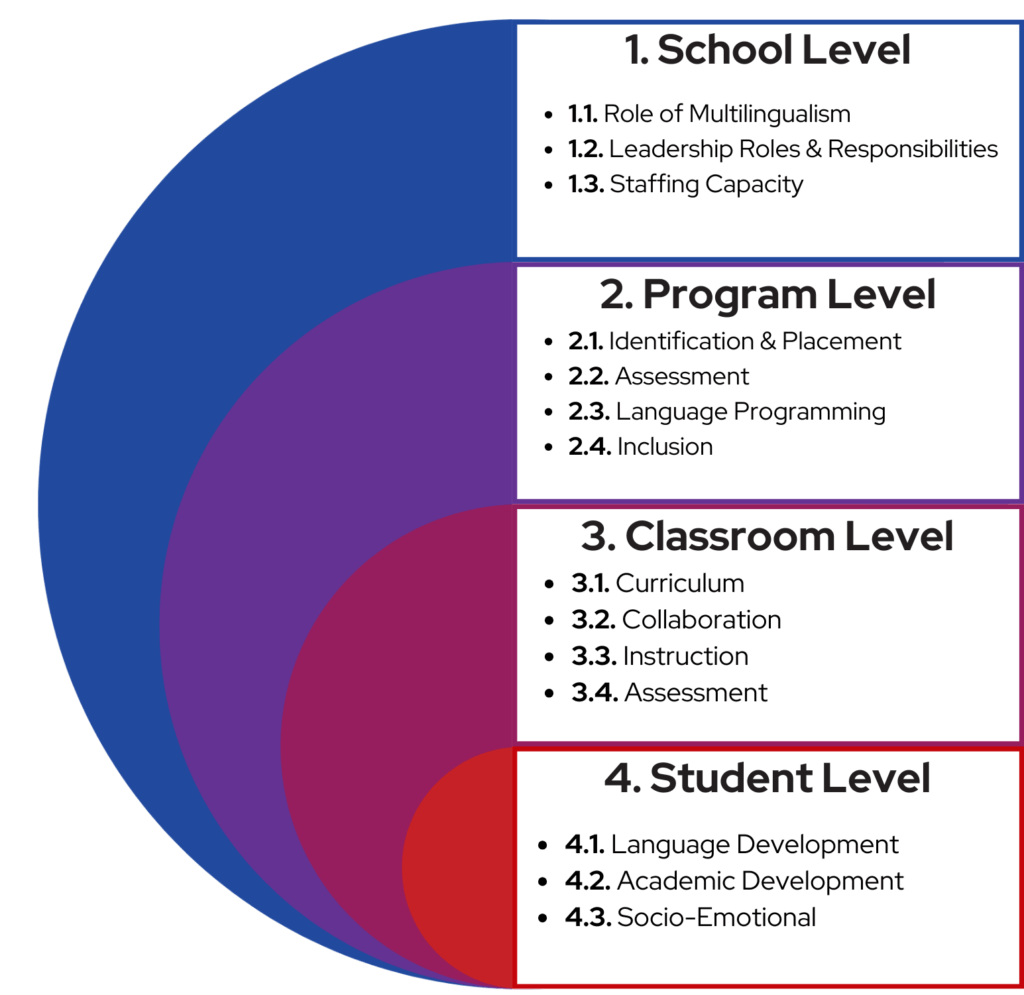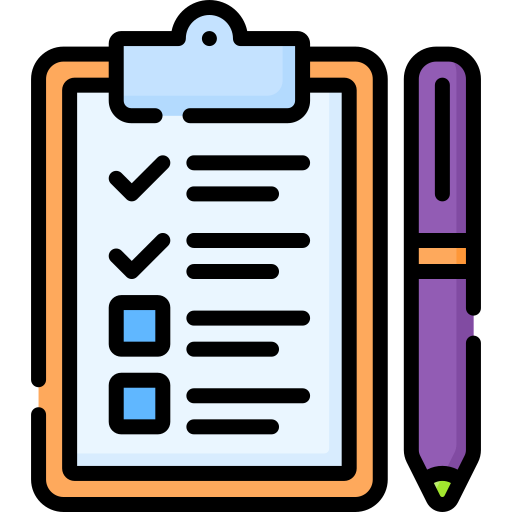Engage in a comprehensive and data-based process to amplify your school’s commitment to excellence and inclusion for multilingual learners. This robust analysis of data provides your school with a clear roadmap for sustained improvement.
Why partner with the MLRC?
As a research-practice partnership, we are focused on improving outcomes for multilingual learners (MLs). The MLRC School Network helps leadership teams make research-informed decisions, collaboratively develop local policies and build responsive learning ecosystems. We believe this work can improve teaching quality for MLs, and increase the use of research evidence about teaching MLs, both of which will result in better ML outcomes over time.
“The MLRC review process allowed us to reflect upon our practice, to elevate our strengths and to understand what our next steps towards greater inclusion of multilingual learners might be.”
– International school leader
Leaders in high-performing schools facilitate the collaborative examination of research and data evidence both to identify problem areas and potential solutions to these problems (Supovitz, 2015). Understanding current research about teaching MLs and skillfully using evidence is important for the success international schools.
We help leadership teams:
- Learn about ML program features and patterns of effectiveness, so they are better able to analyze these characteristics in their own context in relation to demographic and achievement data.
- Understand and evaluate effective teaching practices for MLs, so they are better equipped to develop tools, design program structures and provide specific formative feedback to support educators in improving the quality of teaching for MLs.
- See how to use research evidence, so they can analyze both external research insights and local data to inform research-based policy decisions and program changes.
- Complement accreditation and strategic planning with research-based tools.
Our Framework
The MLRC School Improvement Framework describes research-based components in serving multilingual students within the context of international schools.
The Framework is:
- Developed by the MLRC, a team of global scholars, and international experts
- Grounded in current research and existing evaluation frameworks
The MLRC Program Review Framework has been designed to reflect the nested nature of schools as complex ecosystems. The Framework includes:
- 4 levels: student, classroom, program and school.
- 14 themes within each level are supported by key research from the field of multilingual education, adapted to the international school context.
- 60 specific descriptors indicate exemplary practice, while allowing for flexibility across program models, student demographics and school size.

Four concentric circles, beginning with the outermost circle: 1. School Level 1.1 Role of Multilingualism 1.2 Leadership Roles & Responsibilities 1.3 Staffing Capacity; 2. Program Level 2.1 Identification & Placement 2.2 Assessment 2.3 Language Programming 2.4 Inclusion; 3. Classroom Level 3.1 Curriculum 3.2 Collaboration 3.3 Instruction 3.4 Assessment; 4. Student Level 4.1 Language Development 4.2 Academic Development 4.3 Socio-Emotional
MLRC School Improvement Pathways
We offer MLRC schools several possible school improvement pathways based on each school’s unique needs, context and resources.
The MLRC offers three distinct pathways to help schools enhance their support of multilingual learners:
- Self-study: The Inventory Tool and Playbook provide tools and activities for independent self-evaluation and goal setting. These tools are free for all MLRC member schools.
- Guided Review (online): this collaborative process supports school teams in identifying assets and targets for growth through online facilitation and coaching.
- Comprehensive Program Review (online and on site): This comprehensive review of an EAL/ML program combines data from surveys, observations and focus groups to help schools build on existing strengths to chart a course for future action.
Self-Study
MLRC School Network members can choose from several self-study tools to facilitate school improvement.
- The Inventory tool is a resource designed to help schools reflect on their support for multilingual learners by assessing practices across the four levels of the MLRC Framework: student, classroom, program, and school. It can be utilized by individuals or teams to identify current strengths and areas needing improvement to guide the school’s developmental journey.

- The Playbook guides schools through using the MLRC School Improvement Framework Inventory Tool by providing activities structured across four steps:
- Step 1: Familiarize
- Step 2: Inventory
- Step 3: Deep-Dive
- Step 4: Action Plan

Guided Review
The Guided Review is a facilitated program leveraging self-evaluation and targeted feedback. It is a structured journey for schools seeking to strengthen their support of multilingual learners through internal reflection and MLRC coaching.

- Facilitated Self-Evaluation: The MLRC team guides you through facilitated self-evaluation using the School Improvement Framework.
- MLRC Feedback: Based on your completed Inventory, the MLRC provides personalized feedback to help you get started.
- Internal Focus: This program helps you build internal capacity and cohesion, empowering your staff to design and deliver targeted professional learning.
- Ongoing Support: We provide ongoing support by facilitating discussions that connect your goals to educational research.
- Virtual Coaching: The process includes a kickoff meeting followed by virtual coaching sessions from an MLRC expert, offering in-depth feedback and clear suggestions for next steps.
Program Review
The comprehensive Program Review is a deep, collaborative external evaluation designed to provide an extensive, data-driven look at your school’s ML program. It is ideal for schools seeking a robust analysis to inform multi-year strategic planning.

- Internal and External Evaluation: Combines your school’s self-reflection with the objective, research-based perspective of the MLRC.
- Stakeholder Feedback: We gather input from various groups within your community to get a 360-degree view of your program.
- On-Site Visit: A team from the MLRC conducts an on-site visit for inquiry, observations, and focus groups.
- Comprehensive Report: The process culminates in a detailed report that identifies your program’s strengths and needs, offers concrete guidance on program development, and provides suggestions for next steps.
- Strategic Planning: The review is designed to help you leverage external evidence and build a strategic, multi-year plan for continuous improvement.
